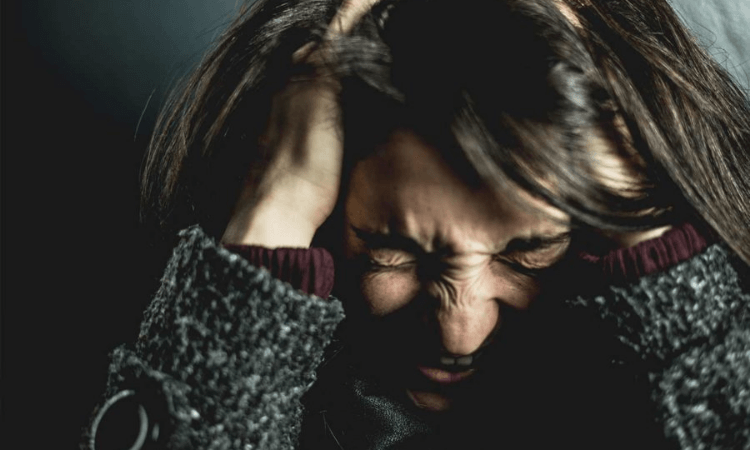Navigating mental health challenges can feel overwhelming, especially when trying to balance everyday life.
A mental health intensive outpatient program (IOP) offers structured support without the need for overnight stays. At Recovery In Tune, our IOP is designed to provide the guidance and care you need while allowing you to maintain your daily routine.
Whether you’re dealing with anxiety, depression, PTSD, or other mental health conditions, our IOP combines evidence-based therapies with holistic approaches to help you move forward.
What Is a Mental Health IOP?
A mental health IOP is designed to support you as you work through mental health challenges. It’s a step between living in a residential treatment center and handling things on your own.
This mental health recovery program often focuses on mood and anxiety disorders like depression, PTSD, and bipolar disorder, and may also address co-occurring substance use issues.
At Recovery In Tune, our IOP combines group therapy, one-on-one counseling, and creative therapies to help you find stability. You’ll work with experienced clinicians who guide you in building skills for recovery while keeping up with your daily life.

Therapies in Our Mental Health IOP at Recovery In Tune
Our mental health IOP includes a range of therapies to help you address your mental health challenges and grow from them.
The in-person therapy options at our treatment facility combine traditional therapeutic and holistic approaches, depending on what feels right for you.
Morning group therapy sessions are a key part of our mental health IOP. Between 9 a.m. and 12 p.m., we offer you a space to share your experiences, learn from others, and receive guidance from a trained therapist.
Group therapy allows you to connect with peers facing similar challenges, offering mutual support as you develop new coping skills.
Sessions focus on different topics, including mental health disorders, substance use, and building strategies for daily life.
Weekly individual counseling sessions help you unpack how you’re feeling, what’s happening in your life, and how it’s affecting your mental health.
These one-on-one sessions focus on your specific needs, so you can take a supported dive deep into your personal challenges.
Cognitive Behavioral Therapy (CBT) is an effective approach we use as part of individual therapy, helping you recognize negative thought patterns and replace them with better behavioral health.
It’s also a great tool if you’re battling any co-occurring disorders, such as mental health and substance use issues.
We understand that mental health conditions and substance use can impact your entire family. That’s why we offer family therapy when needed.
These sessions provide a safe environment for you and your loved ones to improve communication, set healthy boundaries, and work together toward recovery.
Your family members’ involvement can make a huge difference toward maintaining long-term stability and well-being.
For those who have experienced trauma, our mental health IOP includes specialized trauma recovery therapies. Experiencing trauma can be deeply destabilizing, so our goal is to create a safe space for you to heal and rebuild toward true wellness.
We use a range of modalities, including mindfulness, yoga, and stress management, to help you move through the healing process at a pace that feels right for you.
If your trauma is linked to a substance use disorder, we’ll also provide the treatment and tools to work through any addiction issues.
Grief and loss can deeply affect your mental health and it can feel near-impossible to move on from your pain.
Our grief and loss treatment program includes counseling focused on these specific challenges, giving you tools to process your feelings and move forward.
Not every therapy needs words. In fact, some of the most effective therapies are creative ones.
Our mental health IOP includes non-verbal therapies like art therapy, music therapy, and mindfulness.
Through creative and physical outlets, you can explore feelings, reduce anxiety, and discover new ways to cope. We also incorporate mindfulness, yoga, and meditation to enhance your emotional well-being and reduce stress.
We offer both 12 Step and spiritual groups as part of our mental health IOP, each designed to support your personal and emotional growth.
The 12 Step method provides a structured path for you to share your experiences, make amends as needed, and connect with people who understand your challenges.
Our spiritual groups are designed for those seeking a deeper connection beyond traditional therapy. These sessions provide a space for personal reflection, mindfulness, and spiritual growth, so you can find balance and peace in your recovery journey.
To learn more about our therapeutic approaches to mental health healing, get in touch today. A member of our team will happily answer your questions and guide you on your options.
Mental Health IOP Services at Recovery In Tune
At Recovery In Tune, we believe that effective mental health treatment goes beyond therapy. That’s why our IOP includes a variety of health services to address every aspect of your well-being.
From building life skills to managing medical needs, we aim to support your journey from every angle.
Our services are designed to help you develop the confidence, stability, and tools necessary to thrive both during and after your time in the program.
We focus on practical skills that make a difference in everyday life. Whether it’s managing anger, making decisions, or improving communication, our life-skills training helps you handle challenges with more confidence.
We also run groups that dive into mental health education, symptom management, and finding ways to stay motivated.
Taking care of your body is a big part of feeling better. We’ll help you learn about nutrition, build healthy habits, and practice self-care that works for you. If you need extra medical support, we have nurses on staff and access to psychiatric services to ensure you get the care you need.
We know life doesn’t stop during recovery. Our team is here to help you find your footing in work or school, offering guidance and support as you set new goals. We want you to feel ready and capable of taking your next step.
Our case managers help coordinate your care, schedule therapy sessions, and connect you to local resources. We can help with finding housing, securing employment, or accessing educational opportunities that support your goals.
We also know that legal issues can complicate your recovery. Our team offers support with court appearances, probation requirements, and legal documentation.
We provide practical assistance to remove any obstacles to your recovery. This includes arranging reliable transportation from your home to our facility, so you can focus on healing without worrying about logistics.

Who Can Benefit from a Mental Health IOP?
A mental health IOP is ideal if you need structured support while balancing your daily responsibilities. This program is designed for those who:
- Have completed a residential or Partial Hospitalization Program (PHP) and want a step-down level of care for continued recovery.
- Struggle to manage mental health conditions in an unsupervised setting, but don’t require 24/7 supervision.
- Don’t need medical detox or round-the-clock care, but still benefit from regular therapy and support.
- Face challenging mental health conditions that interfere with daily life, making it hard to cope on their own.
- Have a dual diagnosis or co-occurring disorder, such as substance use or an eating disorder, that complicates their mental health condition.
Now is the perfect time to begin to heal!
How Long Do Mental Health IOPs Last?
The length of a mental health IOP varies based on your needs and progress. Recovery In Tune’s IOPs typically last between a few weeks to several months. Most people stay in the program for around six weeks, but this time frame is flexible.
Our goal is to ensure you’re ready before moving to the next phase of your recovery. Your clinical team will regularly review your progress, adjusting your treatment plan as needed to make sure you have the support required at every stage.
Mental Health IOP Cost & Payment Options
The cost of a mental health IOP depends on the duration of your program and the services you need.
Recovery In Tune accepts most major insurance plans that cover mental health care. Our team will verify your insurance benefits and let you know what’s included.
If your insurance doesn’t cover the full cost, we’ll work with you to explore other financial options. We want to make sure you get the care you need without the cost barrier.
What Happens After a Mental Health IOP?
We know that recovery journeys go beyond intensive outpatient care, so we focus on making sure you have the support needed to maintain your progress.
Our outpatient services include ongoing individual and group therapy, giving you a consistent space to share challenges and celebrate successes. We also offer relapse prevention strategies, motivational training, and assistance with work or school transitions.
For more support, we can connect you with community resources like Narcotics Anonymous (NA) and Alcoholics Anonymous (AA), and other support groups.
Our team can provide a referral for additional services or a higher level of care as part of your addiction treatment if needed.
Ultimately, we work with you to ensure your recovery continues beyond the IOP, toward a stable and fulfilling life.
Get Expert Mental Health Care with Recovery In Tune’s IOP
Mental health issues can consume you, clouding your way forward and keeping you stuck in a painful cycle. But you don’t have to let them.
At Recovery In Tune, we’re here to provide the guidance, care, and support you need to regain control of your mental health. Our IOP offers flexible and compassionate care, designed to meet you where you are in your journey.
Whether you’re managing a mental health condition or ready to make a fresh start, our dedicated team is here to help. If you or someone you care about is seeking a positive change, contact us today. Together, we’ll move toward a brighter future.
Mental Health Intensive Outpatient Program FAQs
Intensive outpatient therapy targets mental health conditions such as depression, anxiety, and PTSD. It combines evidence-based treatments like CBT with holistic approaches to help you regain stability and manage daily challenges.
Intensive outpatient treatment offers structured support with therapy sessions during the day, allowing you to continue living at home. They focus on group therapy, individual counseling, and coping skills to support mental health recovery.
An IOP includes a mix of group therapy, one-on-one counseling, and educational sessions. These programs provide tools to manage symptoms, develop healthier habits, and support ongoing well-being.
A PHP involves more intensive care with daily sessions, often five to six days a week, while an IOP offers fewer hours of therapy each week. IOPs are ideal for those needing support without the time commitment of a PHP.
Sources
- Centers for Disease Control and Prevention. “About Mental Health.” Retrieved from: https://www.cdc.gov/mental-health/about/?CDC_AAref_Val=https://www.cdc.gov/mentalhealth/learn/index.htm. Accessed October 25, 2024.
- Mayo Clinic. “Mental Illness.” Retrieved from: https://www.mayoclinic.org/diseases-conditions/mental-illness/symptoms-causes/syc-20374968. Accessed October 25, 2024.
- National Institute of Mental Health. “Anxiety Disorders.” Retrieved from: https://www.nimh.nih.gov/health/topics/anxiety-disorders. Accessed October 25, 2024.
- National Library of Medicine. “Effectiveness of Life Skills Intervention on Depression, Anxiety and Stress among Children and Adolescents: A Systematic Review.” Retrieved from: https://pmc.ncbi.nlm.nih.gov/articles/PMC10325125/. Accessed October 25, 2024.
- NHS. “Overview – Cognitive Behavioural Therapy (CBT).” Retrieved from: https://www.nhs.uk/mental-health/talking-therapies-medicine-treatments/talking-therapies-and-counselling/cognitive-behavioural-therapy-cbt/overview/. Accessed October 25, 2024.
- ScienceDirect. “Clinical Effectiveness of an Intensive Outpatient Program for Integrated Treatment of Comorbid Substance Abuse and Mental Health Disorders.” Retrieved from: https://www.sciencedirect.com/science/article/abs/pii/S1077722922001122. Accessed October 25, 2024.